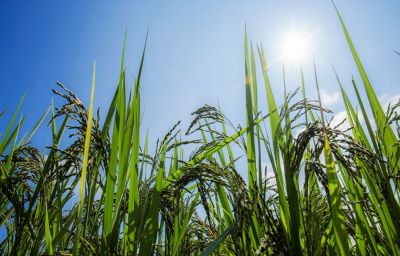Context
Facing a rice shortage due to extreme weather that devastated last year's crop, Japan is turning to new heat-resistant rice varieties to prevent future supply disruptions. High temperatures and dry conditions last summer resulted in decreased rice yields and lower grain quality, leading to the lowest rice inventories in 25 years, as reported by official data.
Overview
● Approximately 800 million people around the world suffer from malnutrition and hunger. Increasing rice production sustainably could enhance global food security and aid in reducing poverty. However, there is growing worry that current rice production levels may not be sufficient to meet future demand.
● Yoshitaka Funakawa, a farmer involved in Saitama’s trial of the heat-resistant rice variety 'emihokoro' or 'beaming smile,' emphasized the urgency, noting that rising temperatures will make traditional rice farming increasingly challenging.
● Excessive heat affects starch formation in rice grains, making them appear cloudy, mottled with white flecks, and less appealing, which diminishes their market value
● Researchers are cross-pollinating various rice seeds to create more heat-tolerant varieties like emihokoro, which is being trialed in 31 fields this year. Rice is a key part of Japanese culture and cuisine, and Japan historically has been self-sufficient in rice production, despite importing over 60% of its food resources.
The heat-resistant rice variety 'emihokoro,'
Also known as 'beaming smile,' is a specially engineered strain designed to tackle the challenges posed by rising temperatures due to climate change. Here’s a detailed overview:
1. Objective and Development
● Purpose: 'Emihokoro' was developed to mitigate the adverse effects of high temperatures on rice crops. As global temperatures rise, they can disrupt rice growth and reduce both yields and grain quality.
● Development: This variety was created through extensive research and breeding efforts aimed at enhancing heat resistance. Scientists cross-pollinate various rice strains to develop a variety that can better withstand elevated temperatures.
2. Characteristics
● Heat Tolerance: 'Emihokoro' is engineered to sustain stable growth and yield under higher temperatures, which is increasingly important as global temperatures rise.
● Grain Quality: The variety aims to maintain the quality of the rice grains, ensuring they remain desirable and marketable despite the stresses caused by heat. This helps avoid issues like cloudy or mottled grains that can diminish market value.
3. Testing and Implementation
● Trials: 'Emihokoro' is currently being tested in field trials to assess its performance under actual growing conditions. These trials are essential for evaluating its effectiveness and making any necessary improvements.
● Adoption: If successful, 'Emihokoro' will be promoted for widespread use among farmers, especially in regions experiencing significant temperature increases.
4. Impact
● Food Security: By enhancing heat resilience, 'Emihokoro' can contribute to more stable rice production, ensuring a reliable food supply and supporting global food security.
● Economic Benefits: It can also provide economic advantages to farmers by preserving rice quality and yields, thus helping to stabilize their income and reduce economic losses caused by climate-related production issues.
Conclusion
'Emihokoro' or 'beaming smile' represents a major advancement in rice breeding, aimed at protecting rice production from the negative impacts of rising temperatures and ensuring a more reliable food supply for the future. Rice plays a pivotal role in global food security, serving as a staple food for over half of the world's population. Given its significance, ensuring the sustainability and resilience of rice production is crucial for addressing ongoing and future food security challenges.
|
Probable Questions for UPSC Mains Exam- 1. Regarding rice, discuss its importance in both developing and developed countries, and its contribution to cultural and economic aspects. (10 Marks, 150 Words) 2. Discuss improved agricultural practices, including water management, soil conservation, and precision farming techniques. (15 Marks, 250 Words) |
Source: The Hindu







